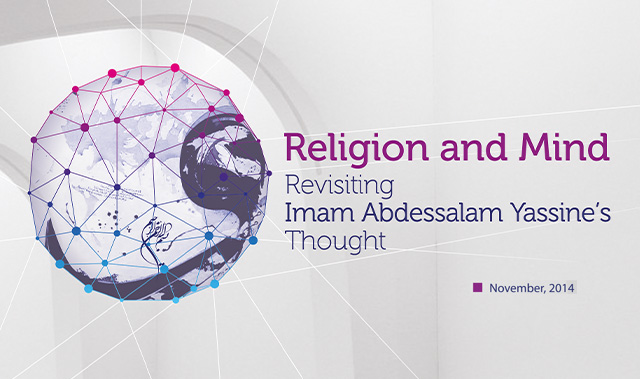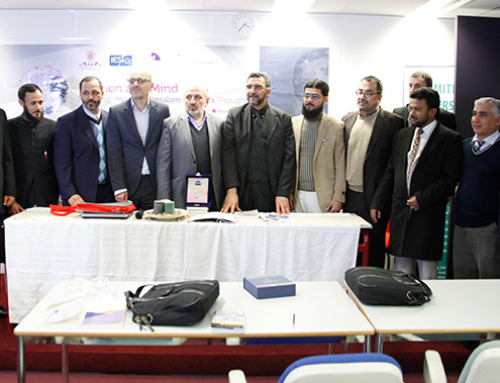Editorial Board
November 18, 2014
Around the world and throughout different eras of history, intellectuals have debated on religion and mind relationship— some have tried to reconcile the two, others have sought to disentangle them, and still others have privileged one over the other.
In today’s modern Islamic thought, one of the most influential proposals about the relationship between religion and mind, between the demands of faith and the rigor of reason to realize the needs of the human community, comes from the Moroccan Islamic scholar and theologian Imam Abdessalam Yassine –God have mecy on him–.
In his works Imam Abdessalam Yassine –God have mecy on him– presents a detailed analysis of the position of the mind in relation to religion. He extensively discussed this issue attempting to provide an adequate and workable definition to the mind; how it should be used and illuminated by faith; the areas of openness and communication between religion and mind; how they have met throughout history and how they arrive to a parting of the ways; then, proposing the best formula for their acquaintance and reconciliation in order to find solutions to problematic issues facing the modern world and to allow the idea to permeate social, intellectual, economic, and political domains.
Imam Yassine –God have mecy on him– clearly states that there is “no conflict between reason and faith”, nor should there be. But the mind “becomes inconsistent with scientific knowledge when led to reckon upon issues he is not created for; when confined to all that can be grasped by its senses and (manipulated by) its tools. But when you arrange for it experimental and empirical tasks, when you guide it by adequate method, the mind then comes up with impressive results. And if you leave it transcend the threshold of its competence, it verily gets into fever of hallucination and subsequently utters mere confusion and illusion.”
In Imam Yassine’s view, the mind is leveled to more than one layer and it has a bundle of functions. Thus, in addition to being «an apparatus of understanding and explaining», the mind also serves for meditating and drawing lessons. This function entails a movement of the mind towards a deeper direction where knowledge is practically overtaken beyond the limits of the visible and where the truth is continuously revealed in its highness, supremacy, and connection with the absolute.
Imam Abdessalam Yassine –God have mecy on him– clarifies that this process in its essence «is not limited to detecting the reactions of histor-making powers; it is not confined to the dynamics of the conflicts between the sons of Adam; it is a process entangled with intelligence, wisdom, and awareness of current data, along with sequencing results out of reasons; (all this) is the craft of senses sensitive to what is happening (in this world) and what fluctuates at every night and day. This is as well the work of a skilful mind that analyzes, synthesizes, predicts, anticipates, and plans. It is also the task of an insightful vision capable of foreseeing prospects and investigating into phenomena».
It is in this framework that this conference seeks to consider the following questions:
• What is the position of the human mind in relation to religion in Imam Abdessalam Yassine’s thought?
• Does Imam Abdessalam Yassine adhere to the idea that the human mind is to think as it wishes without any restraint?
• How does Imam Abdessalam Yassine account for the relationship between these concepts: mind, soul, and heart? Or else reason, revelation, and faith?
• How does Imam Abdessalam Yassine conceive of the Muslim mind emancipation from superstition and illusion on the basis of Qur’anic principles?
• What are the points of intersection between Imam Abdessalam Yassine’s Theory of Knowledge and «Modern Islamic Philosophy».
• How does Imam Abdessalam Yassine consider acculturation, cross-fertilization, and dialoge between civilizations?
This scientific event is also an opportunity to discuss other related issues and to celebrate the first translation into Ukrainian of Imam Abdessalam Yassine’s ” The Muslim Mind on Trial” (Mihnah al-‘Aql al-Muslim, 1995) achieved by Dr. Mykhaylo Yakubovych, professor of religious studies at The National University of Ostroh Academy.




